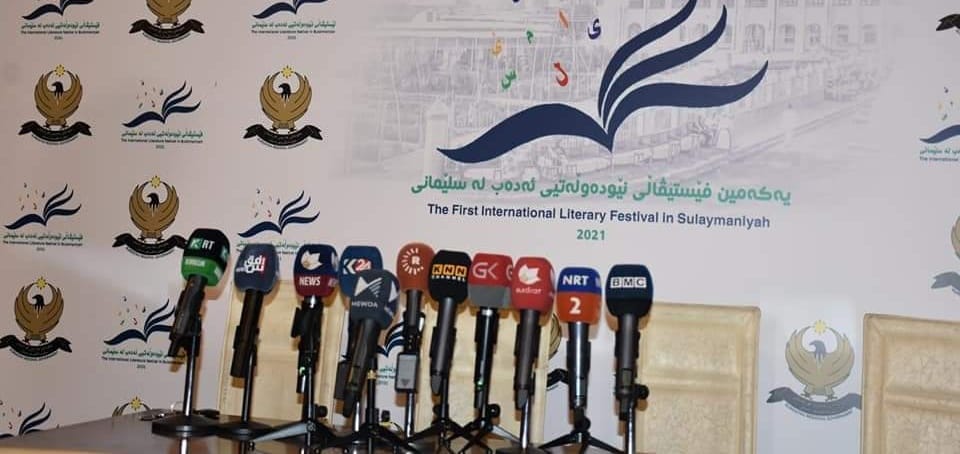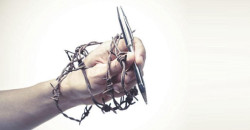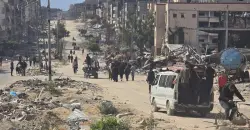From media to politics: journalists shaping Iraq's future

Shafaq News/ Since 2003, Iraq has experienced a dynamic shift as prominent media professionals increasingly move into politics. This trend has accelerated recently, with many achieving notable success in Parliament and government roles, while others' political careers have been shorter. Some have skillfully used their media backgrounds to bolster their political impact.
New politicians view media as a "weapon" to challenge traditional forces and "disturb them," while others believe political media encounters obstacles from money and weapons. Meanwhile, some argue that it's essential for media professionals to enter politics.
In Baghdad and the Kurdistan Region (KRI), notable media figures have entered politics, including prominent presenters and correspondents. While some have taken on key political roles, others have stepped back to media work or balanced both to attract the Iraqi public.
Engaging Youth, Promoting Transparency
In an interview with Shafaq News, Aziz Al-Rubaie, head of the National Line Movement and former Al-Sharqiya satellite channel host, stressed the need for political media to tackle crucial issues, highlighting "the importance of focusing on political action and engaging the younger generation."
Al-Rubaie, along with a team of young experts, chose to form a political movement rather than a party, aiming for a broad social and political project grounded in state principles and inclusivity. He noted, "We might skip the upcoming elections and join the political process later."
Moreover, "Our media work has uniquely positioned us for political involvement," Al-Rubaie explained. "We are well-informed about the intricacies of meetings, alliances, and the democratic process. Unlike others who lack insight into the hidden agendas of political forces, we are aware of both the public and private claims. This deeper understanding boosts our motivation and success prospects."
He added, "Since 2019, our political approach has bridged the gap between traditional forces and the public with clear and transparent communication, which is crucial for garnering support."
Media Roots, Political Vision
Hamid Al-Sayed, leader of the National Line Movement and former Iraqi journalist with Al-Mada Foundation, emphasized the close alignment between his media work and political path. "In media, we addressed fundamental issues within the political system, pinpointed errors caused by power-sharing quotas, and aimed to expose how political factions exploited the country's resources and citizens, presenting solutions to these persistent problems."
Al-Sayed told Shafaq News Agency, "We must do more than just highlight political issues; we need to disturb the political class directly. In Iraq, confronting political action is risky. Without money, power, and weapons, it's hard to make an impact or compete with these forces."
Reflecting on his efforts since 2003, Al-Sayed said, "Alongside a group of independent media professionals, we launched the National Line experiment. Unlike the Tishreen Movement, which faced chaos and inexperience, our approach builds on past lessons. We engage with traditional political forces but reject violence and armed conflict."
He added, "The path is challenging. We need to reestablish ourselves in the political process and regain the trust of Iraqis disillusioned by past failures, sectarianism, corruption, and chaos. We aim to replace the old guard with a new generation from the nineties and early 2000s. A successful journalist can be influential and inspire change."
Al-Sayed also affirmed, "Traditional journalists often chase rewards from their media organizations, but true journalists seek to serve the public. We have avoided sensationalism and blackmail for financial gain. Our society needs the vision and integrity we bring to our journalistic work."
From Reporting to Power
Karwan Yaroes, a former journalist and ex-Iraqi Parliament member from Al-Sulaymaniyah in eastern KRI reflected on his career path, "I began my media journey in 1999 in Kalar district, now part of the Garmian administration. I worked in print journalism and later as a press correspondent for Kurdistan News before shifting to politics."
As a media graduate, Yaroes detailed his transition into politics, noting, "I balanced partisan and political media despite personal views. After managing a media institution, I became the media director for the Patriotic Union of Kurdistan (PUK) in 2014 and joined the Iraqi Council of Representatives in 2021."
He acknowledged the intersection of media and politics, stating, "Both fields demand constant updates and public engagement. However, political work in Iraq and Kurdistan often falls short of global standards, with costly and burdensome efforts. The deep politicization in both societies makes achieving better outcomes challenging."
Serving Through Politics
Ali Hama Saleh, former KRI Parliament representative and Al-Mawqif Movement coordinator, told Shafaq News that he started his political career in 2011 as a Leadership Council member of the Change Movement, following a journalism career focused on economic issues.
Saleh, who served as Vice Chairman of the Energy and Oil Committee and Head of the Parliamentary Change Bloc in 2018, stated, "My goal in both politics and media is to serve the people," emphasizing that "journalists must convey information accurately, while political work demands broader responsibilities."
Furthermore, "Political work in Iraq is challenging and exhausting due to some parties having armed wings and influence in government institutions. Sadly, for some politicians, it has become more of a commercial venture, causing politics to lose its purpose in Iraq," he confirmed.
Journalists Shifting to Politics
Vian Abbas, the former Kurdistan Regional Parliament representative, stated that "journalists, as the fourth estate, play a key role by conveying public suffering and gaining trust," arguing that "these qualities make them well-suited for political roles in Parliament and provincial councils."
Abbas, head of the Kurdistan Journalists Syndicate's Duhok branch, declared, "Journalists with political ambitions aim to address people's issues, whether in political roles or Parliament. Their move into this domain is essential due to the close link between journalism and politics."
Additionally, she pointed out that "more journalists have entered politics recently, driven by their ability to attract voters and their commitment to their work."





